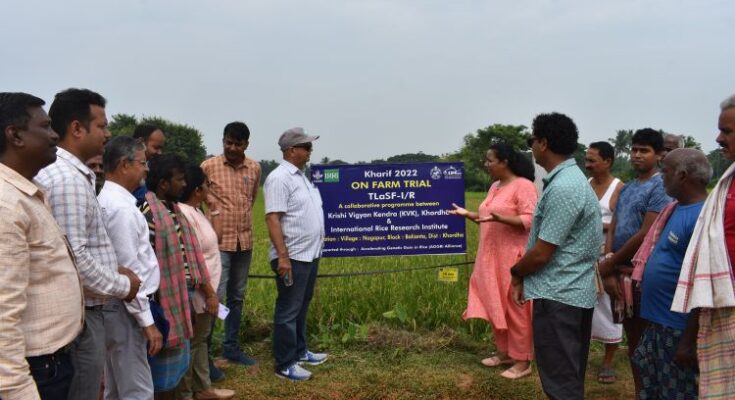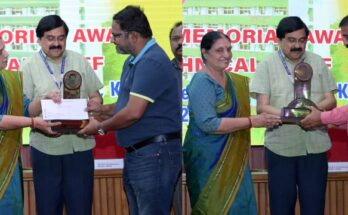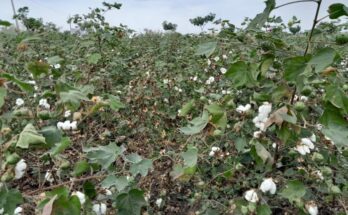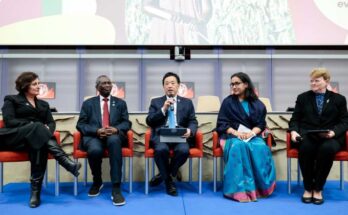Bhubaneswar, India – Climate change is a significant issue for agriculture and particularly, rice in Odisha is vulnerable to adverse weather conditions like intermittent drought, erratic rainfall, floods, salinity and others. In order to help smallholders, fight these abiotic stresses, Philippines-based International Rice Research Institute (IRRI) has conducted on-farm trials and demonstrations of several new rice varieties that can withstand weather extremes like flood and drought and offer a better yield.
These uniquely designed variety trials are organised in farmers’ fields to show the attainable advantages of new varieties. The farmers in this region have already adopted IRRI-trialed varieties like Binadhan 11, Swarna sub 1, and CR 1009 sub 1 that can tolerate and assure farmers of good production. Since this low-lying area of Odisha suffers a double whammy of both flood and drought, IRRI demonstrates varieties such as CR dhan 801 and CR dhan 802 that can cope with both these climate extremes considerably. The newly released biofortified rice rich in zinc and protein like DRR dhan 45, CR dhan 310, and DRR dhan 315 are also demonstrated in farmers’ fields to contribute to the larger agenda of nutritional security of the state.
You may also like to read: Gram Unnati, JSL (Hisar) conduct training camp with Hisar KVK for Rabi season
Scientists at IRRI are hopeful about the research with biofortified and nutrient-dense rice varieties that can potentially help alleviate the high incidence of malnutrition caused by micronutrient deficiency. These trials are a combined effort of International Rice Research Institute (IRRI), the Odisha state agriculture department to improve the productivity and quality of rice for farmers’ income enhancement.
A team from IRRI’s headquarters led by Senior Scientist Dr. Hans Bhardwaj visited the trial locations at Puri and Khordha and interacted with the farmers, government officials, KVK (Krishi Vigyan Kendra) scientists, and seed dealers to make an on-ground assessment of the initiative. “We will do a collective evaluation of all the trialled varieties, and the best fit varieties will further be advanced through the seed chain”, he said. Dr. Hans Bhardwaj was accompanied by a group of scientists—Drs Sankalp, Swati Nayak, Mukund Variar, Vikash Singh and Pallavi Sinha.





